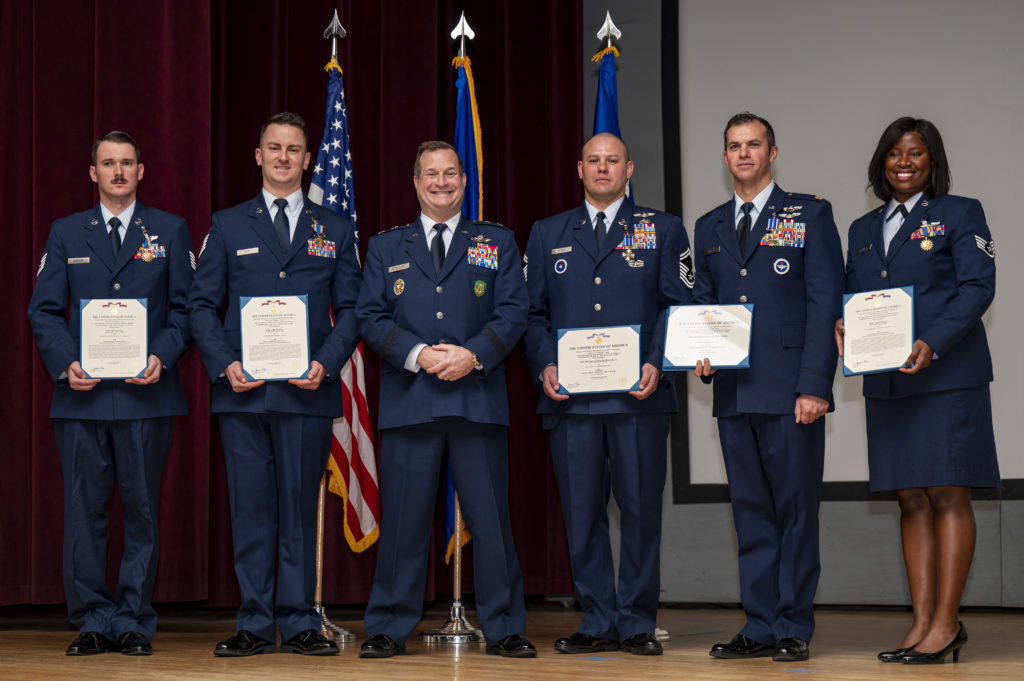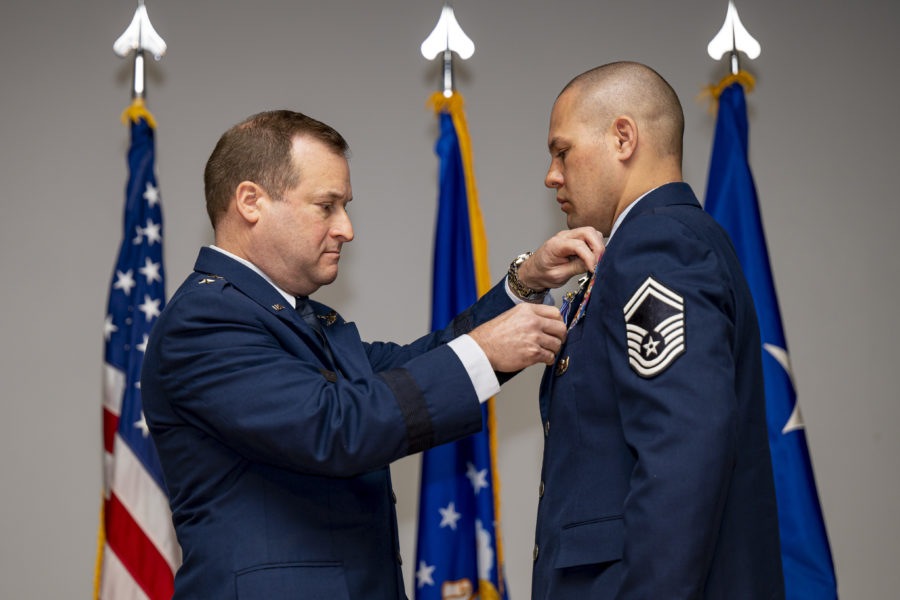Two Airmen were awarded the Distinguished Flying Cross for their part in in a daring, dangerous hostage rescue operation in Africa more than two years ago. Three others on the mission received Air Medals. The awards were presented at a Jan. 11 ceremony at Kirtland Air Force Base, N.M.
Maj. Kyle Konkolics and Senior Master Sgt. Christopher Reedy received DFCs, the military’s fourth-highest award for heroism, for a short-notice mission in Northern Nigeria, where they rescued Philip Walton, a 27-year-old U.S. citizen who had been abducted in neighboring Niger, according to a contemporaneous report.
Others on the mission were Staff Sgt. Christin Springs, Tech. Sgt. Thomas Morgan, and Staff Sgt. Robert Duck, all of whom received the Air Medal for their efforts.
Flying CV-22 Osprey and MC-130J Commando II aircraft, the Special Operations Airmen transported members of Navy Seal Team 6 from Rota, Spain, to Nigeria for the rescue operation, which concluded with no U.S. casualties. KC-135 tankers and an AC-130J gunship also supported the operation, according to media reports at the time.
The 11-hour flight to Nigeria was the longest-distance night-time hostage rescue in Pentagon history, according to the Air Force release, and involved the CV-22’s longest flight at high altitude, according to the Albuquerque Journal.
According to citations for the awards, flying at high altitude in the CV-22’s unpressurized cabin caused several members of the assault team to suffer hypoxia from lack of oxygen. Crews had to conduct multiple air-to-air refueling operations in the dark over remote, desolate terrain, and at least one KC-135 suffered an electrical failure, and
In the midst of the operation, the CV-22 in which Reedy was flying suffered a “total loss of critical aircraft systems,” according to the citation. Reedy helped regain the use of one radio and coordinated a refueling and landing with no cockpit displays. Konkolics, piloting a second CV-22, escorted the malfunctioning aircraft for its emergency landing and then rejoined the formation to continue the mission, landing in “an unknown threat environment to recover the hostage and assault force at an unplanned, austere landing zone with obstacles mere feet away from his aircraft,” his citation reads.
Morgan also assisted with the emergency landing in a remote, austere environment, while Duck was recognized for giving his oxygen mask to members of the assault force who were suffering from hypoxia. Springs was honored for her efforts in refueling the MC-130J despite degraded communications.

